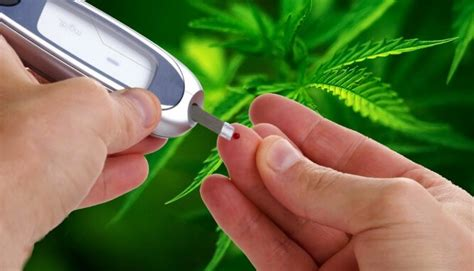How Medical Marijuana Helps Treat and Prevent Diabetes
Diabetes is one of the most challenging diseases in the modern world, with serious consequences including the risk of blindness, kidney failure, heart attacks, strokes, and limb amputations. Closely linked to modern civilization, this disease is often caused by increased sugar consumption and a sedentary lifestyle, making it increasingly common. In the United States alone, about 1.4 million new cases are diagnosed each year. Severe symptoms such as nausea, slow wound healing, excessive thirst, and blurred vision require all possible measures to prevent the spread of diabetes. Could cannabis become another tool in the fight against this dangerous disease?
What Does the Science Say?
Research on this topic has explored whether cannabis can serve not only as a treatment for diabetes but also as an effective preventive measure.
Cannabis may play an important role in managing neuropathic pain in the legs and feet, which often accompanies the disease. A study published in 2015 showed that a spray containing THC and CBD can relieve neuropathic pain in some diabetic patients.
There is ongoing debate about whether cannabis increases or decreases the risk of developing type 2 diabetes. A 2016 study involving 18,000 Swedish men and women found no correlation between cannabis use and type 2 diabetes. However, another study from 2018 found a positive association between cannabis use and a reduced likelihood of type 2 diabetes. This large statistical study demonstrated that type 2 diabetes is less common among cannabis users than among non-users. These results essentially invite further research with more precise measurements and detailed statistical analysis.
A previous meta-analysis published in 2015 showed an inverse relationship between smoking cannabis and diabetes. It found that cannabis users are less likely to suffer from diabetes than non-users. This may be because lower body mass index and fasting insulin levels were associated with cannabis use, in addition to appetite suppression, making medical marijuana a potential treatment for obesity as well. Since obesity is a major risk factor for developing type 2 diabetes, it can be concluded that smoking cannabis indirectly reduces the likelihood of developing diabetes.
When it comes to neuropathic pain, cannabis is of particular interest because most traditional medications have serious side effects that limit possible dosages and, therefore, their overall effectiveness. However, it is not advisable to include cannabis in a comprehensive diabetes treatment plan without considering its interactions with other medications. For example, cannabis may reduce the effectiveness of metformin, a drug commonly prescribed to diabetics to control blood sugar levels. There is also currently no reliable data on the necessary dosage of cannabis for diabetes.
Today, in many countries where cannabis is legal, its use by diabetic patients under medical supervision has become common practice. However, it is strongly recommended not to use cannabis for diabetes without consulting a doctor, as it is essential to consider possible interactions with other medications and adjust the treatment plan if necessary.



